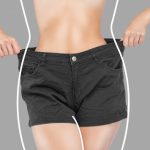Here in the U.S., we have an abundance of food at our fingertips. Yet many folks can’t seem to get rid of that underlying “gnawing hunger” in their gut. They just feel the need to eat all of the time.
One of the biggest problems may be that we’re eating a lot of the wrong foods, and not enough of the right ones.
For example, many people think eating foods that contain fat cause weight gain. If you’re one of them, you may have cut fats from your diet in order to lose weight or keep from gaining any additional pounds.
However, your body needs fats. They have all sorts of health benefits… including the ability to keep you feeling full long after you’ve eaten them. So even though they’re high in calories, they can ultimately cut your caloric intake!
Extra virgin olive oil is one of my favorite sources of healthy fats. Including it regularly in your meals can increase the levels of serotonin – a satiety hormone – in your blood. This keeps you from overeating later in the day, and could reduce your calorie intake by as much as 175 calories a day.
Avocados are also loaded with healthy fats that keep you feeling satiated throughout the day. That’s because the monounsaturated fats in this fruit have an influence on the hormone (leptin) that tells you when you’re full. At the same time, avocados help keep insulin levels steady.
What does that mean for you? Eating just a half of an avocado can reduce your desire to eat by about 40% over the next three to five hours.
Tree nuts (not peanuts) are another big win in my book. Despite the myth that they’ll make you fat, just the opposite is true. They may even encourage weight loss. That’s because their healthy protein, fat and fiber content can make you feel more satiated after eating them, and keep you feeling fuller longer than many other foods.
Try unsalted pistachios, walnuts and cashews. Almonds, pecans, macadamia and Brazil nuts are all great choices, too.
Add Protein for All-Day Satiety
Protein is another big winner when it comes to satisfying your hunger. And the fullness it gives you won’t disappear in a matter of hours like carbs do. Instead, it will help keep your appetite under control all day long.
For example, eating a freshly pastured egg at breakfast suppresses ghrelin, the hormone that sends hunger signals to your brain. Eggs also keeps your blood sugar and insulin levels steady. This keeps your hunger in check, which helps decrease your food intake as the day goes on.
But eggs aren’t your only source of protein.
You can get plenty of it from beans, nuts, seeds, coconut milk, kefir and plain organic Greek yogurt. You can even whip up a protein shake or smoothie. Just mix some plant-based protein powder with almond milk and throw in some blueberries and dark-green leafy veggies.
Wild-caught fish, grass-fed beef and pastured poultry are other good sources of protein. Just don’t go overboard on them. These meat sources of protein should only account for about 15% of your diet.
How Zero Calorie Sweeteners Trick Your Body into Weight Gain
Maybe you think you’re doing your body a favor by replacing sugar with artificial sweeteners. I understand the appeal. The marketers for these fake sugars make it sound like they are the cure-all for obesity and metabolic issues.
They aren’t.
Sugar-free sweeteners actually contribute to a larger waistline and the development of obesity-related metabolic disorders like type 2 diabetes. Even though they contain zero calories, your body metabolizes them differently, which can result in weight gain.
First off, they literally trick your body into thinking it’s going to get a big dose of calorie-rich sugar. So your body releases insulin in expectation of a sugar rush.
But soon after consuming an artificial sweetener your brain says “Hey, wait a minute. You can’t fool me. This isn’t right. It’s fake. I want a REAL SWEETENER!”
Now your body is craving sweets and your appetite is revved up even more than it was before. And you’ve got all of that unnecessary insulin rushing through your body that causes you to store more fat.
Secondly, fake sweeteners increase the proportion of gut microbes that disrupt metabolism and energy stores. They promote gut bacteria that are pre-programmed to turn energy into fat and cause metabolic alterations that can lead to abnormally high blood sugar levels.
If you feel you really need a no-calorie sweetener, I recommend stevia. It’s a safe, calorie-free sweetener that doesn’t carry the same metabolic risks you find with artificial sweeteners.
In the meantime, choose the right foods to eat and stop feeling hungry all of the time.
SOURCES:
Technische Universitaet Muenchen. “Olive oil makes you feel full.” ScienceDaily. Mar 2013.
Wien M, Haddad E, Oda K, Sabaté J. A randomized 3×3 crossover study to evaluate the effect of Hass avocado intake on post-ingestive satiety, glucose and insulin levels, and subsequent energy intake in overweight adults. Nutr J. 2013 Nov 27;12:155.
Jackson CL, Hu FB. Long-term associations of nut consumption with body weight and obesity. Am J Clin Nutr. 2014 Jul;100 Suppl 1:408S-11S
Paddon-Jones D, Westman E, Mattes RD, Wolfe RR, Astrup A, Westerterp-Plantenga M. Protein, weight management, and satiety. Am J Clin Nutr. 2008 May;87(5):1558S-1561S.
Ratliff J, Leite JO, de Ogburn R, Puglisi MJ, VanHeest J, Fernandez ML. Consuming eggs for breakfast influences plasma glucose and ghrelin, while reducing energy intake during the next 24 hours in adult men. Nutr Res. 2010 Feb;30(2):96-103.
Taheri S, Lin L, Austin D, Young T, Mignot E. Short sleep duration is associated with reduced leptin, elevated ghrelin, and increased body mass index. PLoS Med. 2004 Dec;1(3):e62. Epub 2004 Dec 7.
Spiegel K, Tasali E, Penev P, Van Cauter E. Brief communication: Sleep curtailment in healthy young men is associated with decreased leptin levels, elevated ghrelin levels, and increased hunger and appetite. Ann Intern Med. 2004 Dec 7;141(11):846-50.
Papatriantafyllou E, Efthymiou D, Zoumbaneas E, Popescu CA, Vassilopoulou E. Sleep Deprivation: Effects on Weight Loss and Weight Loss Maintenance. Nutrients. 2022 Apr 8;14(8):1549.
Yang Q. Gain weight by “going diet?” Artificial sweeteners and the neurobiology of sugar cravings: Neuroscience 2010. Yale J Biol Med. 2010 Jun;83(2):101-8. Suez J, Korem T, Zeevi D, Zilberman-Schapira G, Thaiss CA, Maza O, Israeli D, Zmora N, Gilad S, Weinberger A, Kuperman Y, Harmelin A, Kolodkin-Gal I, Shapiro H, Halpern Z, Segal E, Elinav E. Artificial sweeteners induce glucose intolerance by altering the gut microbiota. Nature. 2014 Oct 9;514(7521):181-6.



